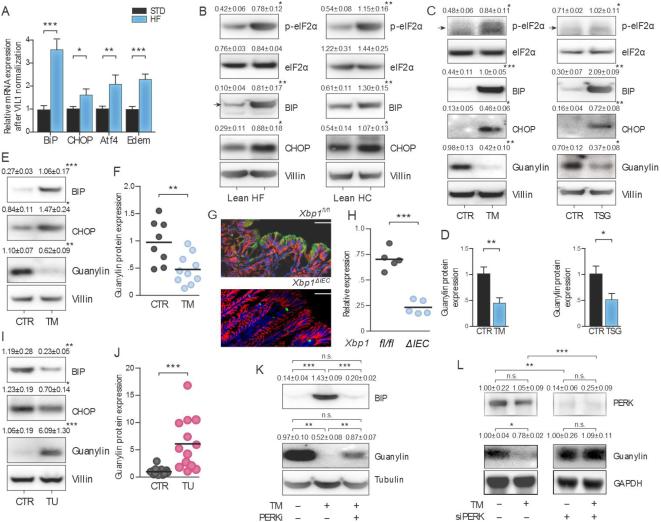Figure 3. ER stress mediates guanylin suppression by ingested calories.
(A) High calorie diets induced the transcription (A) and translation (B) of markers of ER stress in colon in C57BL/6 mice. (C-D) ER stress induced by 2.5 μg/ml tunicamycin (TM) or 500 nM thapsigargin (TSG) increased markers of ER stress and suppressed guanylin in Caco2 cells. (E-F) IP administration of 1 mg/kg TM to C57BL/6 mice increased markers of ER stress and suppressed guanylin expression in colon. (G-H) Colons from Xbp1ΔIEC mice exhibited reduced expression of guanylin (green) compared to wild type (Xpbfl/fl) mice [β-catenin (red)]. (I-J) TUDCA (150 mg/kg by oral gavage for 12 d) relieved ER stress and rescued guanylin expression in C57BL/6 mice on a HF diet. (K) Inhibition of PERK by GSK2606414 relieved ER stress and restored guanylin expression in Caco2 cells treated with TM. (L) PERK siRNA restored guanylin expression in HEK 293 cells treated with 1.0 μg/ml TM. In vitro results represent the mean ± SEM of three independent experiments performed in triplicate. In vivo results represent the mean ± SEM of 5 mice unless otherwise indicated.

